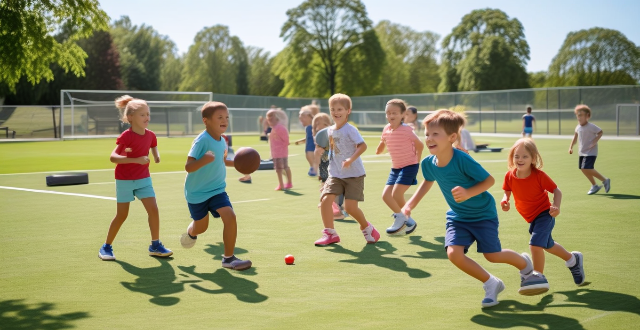Specializing in a single sport at an early age can have both advantages and disadvantages for children. While it may lead to improved skill development and potential for higher-level competition, there are also several potential risks associated with this approach. These include physical risks such as overuse injuries, burnout, and lack of cross-training benefits; psychological risks like pressure and stress, narrowed social experiences, and fear of failure; developmental risks including delayed skill development, loss of childhood, and reduced adaptability; social risks such as isolation, peer pressure, and limited life skills; and academic risks such as time management challenges and prioritization issues. To mitigate these risks, experts often recommend encouraging diverse participation in sports until late adolescence, ensuring a balanced approach between sports, school, and leisure time, providing access to mental health resources for athletes dealing with stress and pressure, and involving parents in a supportive but not pushy way.

The Potential Risks Associated with Children Specializing in One Sport Too Early
Specializing in a single sport at an early age can have both advantages and disadvantages for children. While it may lead to improved skill development and potential for higher-level competition, there are also several potential risks associated with this approach. Here are some of the key concerns:
Physical Risks
- Overuse Injuries: Repetitive motions and stress on specific body parts can lead to overuse injuries like tendinitis or growth plate injuries.
- Burnout: Physical exhaustion from intense training can lead to burnout, which may cause long-term damage to a child's health.
- Lack of Cross-Training Benefits: Focusing on one sport means missing out on the physical benefits that come from participating in a variety of activities.
Psychological Risks
- Pressure and Stress: The pressure to perform at a high level can lead to stress and anxiety.
- Narrowed Social Experiences: Spending all free time on one activity can limit opportunities for social interaction and diverse experiences.
- Fear of Failure: An intense focus on a single sport can create a fear of failure that impacts mental well-being.
Developmental Risks
- Delayed Skill Development: Specializing too early may delay the development of fundamental motor skills that are important for overall athleticism.
- Loss of Childhood: Sacrificing other childhood experiences for sports can lead to resentment and regret later in life.
- Reduced Adaptability: Without exposure to different sports, children may not develop the adaptability needed for new challenges and environments.
Social Risks
- Isolation: Being part of a team is great, but focusing solely on one sport can isolate children from peers who participate in other activities.
- Peer Pressure: There may be pressure from teammates or coaches to specialize early, even if it's not what the child wants.
- Limited Life Skills: Sports teach valuable life skills, but a narrow focus means missing out on learning skills from other activities.
Academic Risks
- Time Management: Balancing academic responsibilities with intensive sports training can be challenging and may lead to poor academic performance.
- Prioritization Issues: Sports may become prioritized over education, potentially affecting long-term academic goals.
Recommendations
To mitigate these risks, experts often recommend the following:
- Diverse Participation: Encourage children to try multiple sports and activities until they reach late adolescence.
- Balanced Approach: Ensure that there's a balance between sports, school, and leisure time.
- Mental Health Support: Provide access to mental health resources for athletes dealing with stress and pressure.
- Parental Involvement: Parents should be supportive without being pushy, allowing children to explore their interests freely.
In conclusion, while specializing in one sport can offer certain advantages, it's crucial to consider the potential risks and take steps to ensure a healthy, balanced approach to youth sports participation.